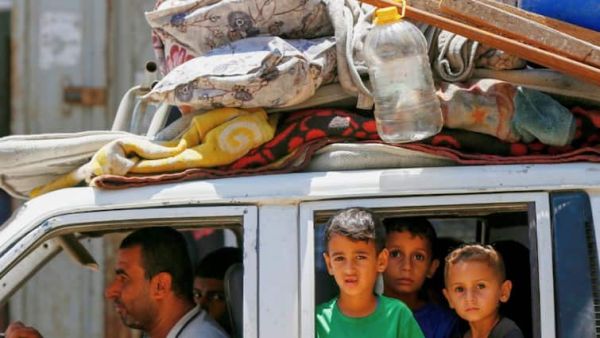
Gaza is facing a deepening humanitarian catastrophe, with the head of the World Health Organization declaring the crisis a clear case of man-made mass starvation driven by a blockade on critical aid.
Speaking during a live-streamed press conference from Geneva, WHO Director-General Dr. Tedros Adhanom Ghebreyesus issued a stark warning about the worsening conditions in the war-torn enclave. “I don't know what you would call it other than mass starvation, and it's man-made, and that's very clear,” he said. “This is because of the blockade.”
Human Rights Groups Warn:
Tedros' remarks come in the wake of a collective appeal from over 100 humanitarian organizations sounding the alarm on escalating hunger levels in Gaza. Meanwhile, life-saving supplies — including food, clean water, and medicine — remain stalled just beyond the territory’s borders.
What Led To The Crisis:
Since Israel cut off all supplies to Gaza in March amid its ongoing conflict with Hamas, aid access has been severely restricted. Though the blockade was partially lifted in May, aid groups report that only a fraction of the necessary assistance is reaching those in need. Israel insists that controls are essential to prevent resources from falling into the hands of militant groups. Officials also maintain that sufficient aid has been permitted through and place the blame for the humanitarian crisis on Hamas.
However, on the ground, the situation tells a different story.
Food Crisis Worsens:
According to Gaza’s health ministry, ten more Palestinians died from hunger overnight, bringing the total number of starvation-related deaths to 111 — most of them in recent weeks, as a wave of hunger continues to engulf the enclave.
The WHO has confirmed that at least 21 children have died from malnutrition so far in 2025, though officials believe the real number is likely far higher. Health centers treating malnourished children are stretched beyond capacity, running low on therapeutic food and emergency supplies. The crisis has worsened due to the collapse of aid delivery systems and ongoing access restrictions.
Dr. Tedros emphasised that between March and May, humanitarian agencies were unable to deliver any food to Gaza for nearly 80 days. Even now, resumed deliveries remain critically inadequate.
The situation is beyond alarming, WHO officials said. Around 10% of individuals screened in the region are suffering from moderate to severe malnutrition, including one in five pregnant women.
The crisis is especially devastating for children. In July alone, 5,100 children have been admitted to malnutrition treatment programs, including 800 who are severely emaciated, according to Rik Peeperkorn, WHO’s representative for the occupied Palestinian territories.
-
Somy Ali believes in Tanushree Dutta’s allegations of being harassed at home: ‘Her mental health…’

-
Sundar Pichai’s Google’s BIG collaboration with IIT, BharatGen to build indigenous…

-
'Giving Bowling Is Captains Call': Shardul Thakur On Shubman Gill Giving Limited Chance To Bowl During IND vs ENG 4th Test

-
SBI PO Prelims Admit Card 2025 Released At sbi.co.in; Exam From August 2

-
Parag Tyagi Pays Tribute To Wife Shefali Jariwala By Covering Walls With Her Photos: 'May Not Be Able To Hold You In My Arms...' (VIDEO)
